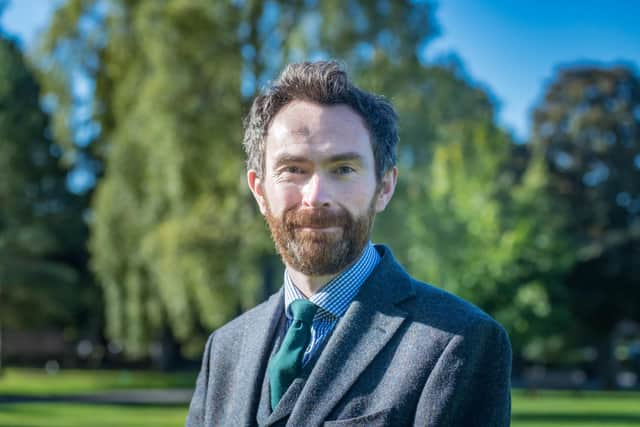Education and Careers: Rector of Dollar Academy Ian Munro on the power of collaboration
And so, FIDA (the Futures Institute at Dollar Academy) was born in the summer of 2021, and with support from industry and academic partners including Scottish Ballet, Highland Spring, the Roslin Institute and the University of Cambridge, we created a contemporary curriculum which is designed to give students from all backgrounds the knowledge, skills, and mindset required to negotiate an uncertain future.
While much of our work to date has taken place online, our new institute will allow us to transfer to a physical setting, providing a space for students to experiment, collaborate and connect. Not only will the new building help strengthen FIDA’s identity, it will also be a national example of how a sustainability-led approach to design can create an innovative space for young learners.
Advertisement
Hide AdAdvertisement
Hide AdSustainability is itself a core value of ours. The courses we offer reflect this, they are underpinned by the requirement that learners offer a solution to a real-world problem, as well as being framed by the United Nations’ Sustainable Development Goals. We also prioritise the urgent need to place more emphasis on interdisciplinary learning, to ensure that young minds are equipped with the flexibility, agility and openness to adapt to and address the many challenges and opportunities facing society.


Crucially, we make use of a wider range of assessment techniques than traditional Highers and Advanced Highers. Our students compile digital portfolios of their work, and we are currently in discussion with one Scottish university about direct accreditation of our developing Sustainability Diploma. This would see our students gain direct entry to university via an alternative to the more traditional SQA (Scottish Qualifications Authority) pathway.
Those who keep a weather eye on Scottish education will recognise FIDA’s approach addresses the recommendations made in Professor Louise Hayward’s recently published independent review of qualifications and assessment, It’s Our Future.
Since FIDA’s early days, we’ve known we were on to something special. One measurement of our success has been our ability to deliver on recommendations made by Professor Ken Muir in his Putting Learners At The Centre report.
However, we don’t solely measure our success against academic reviews –one of FIDA’s fundamental goals is to provide opportunities to young people of all backgrounds. We have supported thousands of Scottish pupils over the past two years since, including those from the most deprived communities in the country, to broaden their range of achievements and future prospects. We now workwith more than50 local education authority schools and our steering group is made up of colleagues from the state sector.


FIDA is, therefore, at the forefront of curricular reform in Scotland – but our ambition does not stop there. We have forged strong relationships with colleagues in local authority schools and Education Scotland itself promoted our materials in the run up to COP26. As such, we have demonstrated how independent schools can become even greater forces for good.
Cash alone is not going to ensure the development that we so desperately need across our schools, and those in positions of power would do well to bear that in mind. The independent think-tank EDSK has demonstrated that policies such as Keir Starmer’s proposed introduction of VAT on independent school fees are unlikely to raise the £1.6 billion suggested – and, in any case, money will not necessarily provide an easy or straightforward fix.
At the same time, surely there can be no debate about the power of collaboration between teachers, of sharing good practice, and of leadership that finds its foundations in the deep moral imperative to get education right for young people. We must look beyond the balance book to harness the great transformative power that lies within all our schools, not just the independent ones.
Go online and visit fida.world